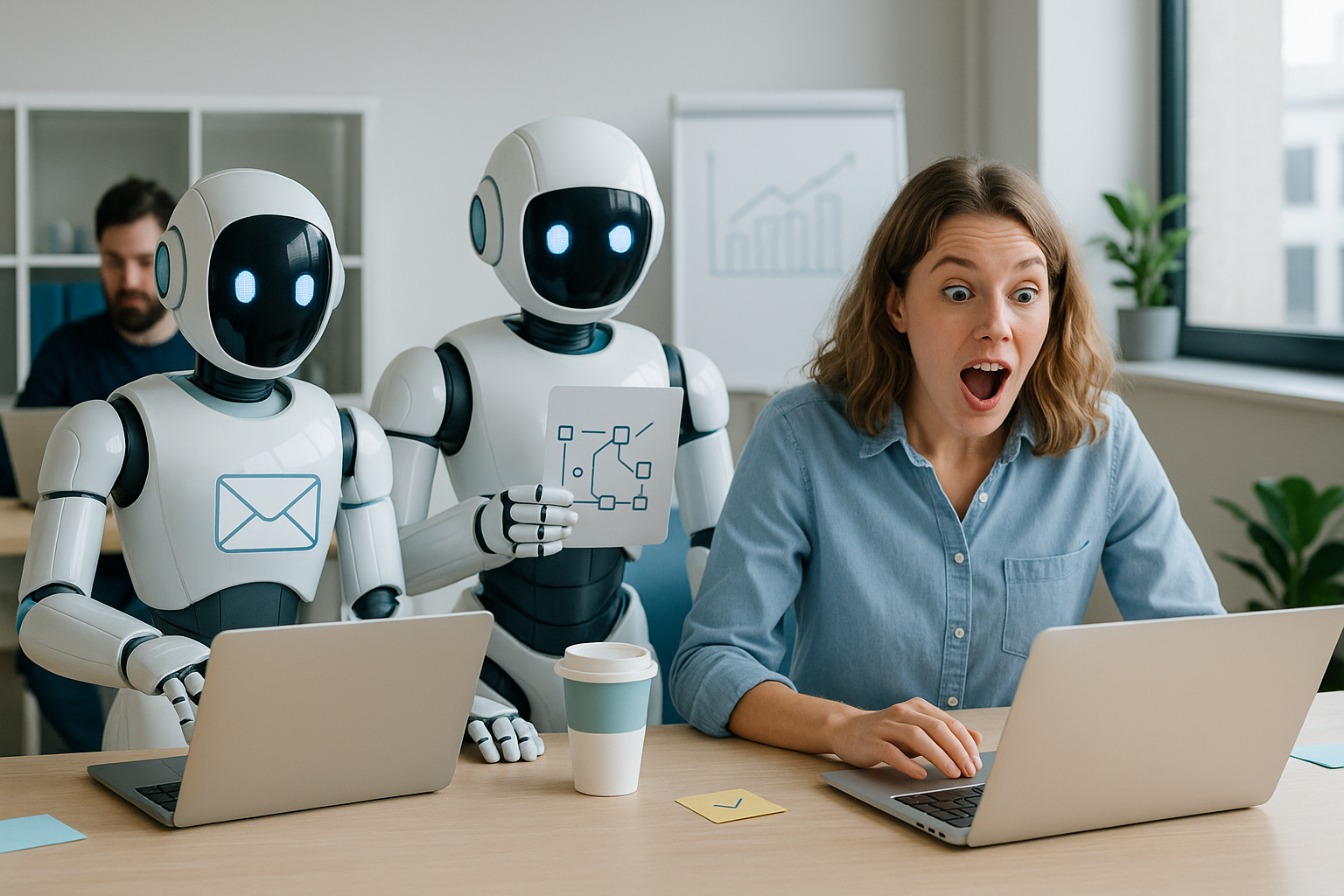AI agents are no longer just futuristic concepts—they’re now transforming work and life in 2025.
These intelligent bots do much more than answer simple questions
Tthey actively perform tasks, from managing your inbox to collaborating on complex projects. Far from job stealers, AI agents resemble dedicated digital teammates who streamline mundane chores and enhance productivity.
What Are AI Agents?

So, what exactly are AI agents?
Think of them as advanced software systems capable of decision-making, learning, and autonomous action, often with minimal human input.
Unlike traditional chatbots that simply respond with canned answers, AI agents can navigate digital tools and execute multi-step workflows efficiently. Fueled by powerful large language models like GPT, reinforcement learning, and integration with IoT devices, these agents serve as proactive helpers in any digital environment.
Key Trends Defining AI Agents’ Evolution in 2025

- Interface Agents Simplifying Tasks:
Tools like Microsoft OmniParser and AutoGen WebSurferAgent automate repetitive activities such as data entry and research, reducing manual effort and boosting efficiency. - Autonomous Decision-Making and Collaboration:
Modern AI agents adapt dynamically, collaborate seamlessly with humans, and handle complex decision processes, making them trusted partners in industries like healthcare, finance, and customer support. - Industry-Specific AI Agents:
Specialized agents tailored to sectors like healthcare, finance, software development, and customer service bring domain expertise, enhancing accuracy and compliance. - Fusion of Generative and Agentic AI:
The combination enables AI agents not only to generate content but also to execute tasks autonomously, creating hands-off, intelligent workflows. - Open Source Frameworks Accelerate Development:
Platforms such as LangChain and CrewAI provide accessible building blocks, empowering startups and developers to innovate rapidly. - Expanding Ecosystems and Marketplaces:
Ready-to-use AI agents are increasingly available in marketplaces, making advanced automation accessible without deep AI expertise.
Real-World Applications and Challenges

Real-world applications abound—from AI scribes improving healthcare documentation to virtual assistants streamlining enterprise productivity.
In finance, AI agents monitor transactions and prevent fraud with relentless vigilance, while in software development, they assist programmers by suggesting code and debugging. Robotics also benefits, as AI agents enable autonomous systems to operate safely and efficiently.
However, alongside these advancements come important challenges. Ensuring ethical AI use, transparency, and effective governance remains critical. Governments and industry bodies focus on risk management, regulating dangerous applications, and demanding explainability to foster trust.
Ultimately, AI agents in 2025 act as powerful collaborators—blending intelligence, autonomy, and efficiency to reshape how we work, heal, create, and live. Embracing these digital partners may well make even the toughest Monday mornings more manageable. The age of AI agents is here, and they’re ready to change the game.

